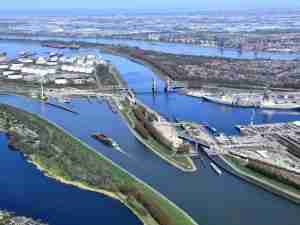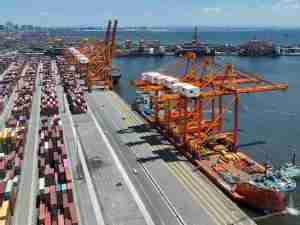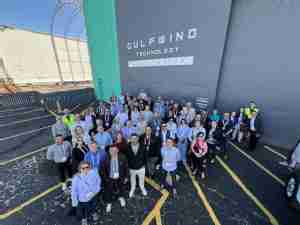Federal Court Judge Christina Snyder issued a preliminary injunction Wednesday, April 29, blocking some provisions the Port of Long Beach Clean Trucks Program, but allowed the Port to continue cleaning up the truck fleet and improving the health of the community.
While key elements of Long Beach’s Clean Trucks Program were left intact by Judge Snyder's ruling, she enjoined the employee driver mandate in the Port of Los Angeles truck program -- a requirement that does not exist in Long Beach's program.
"With Judge Snyder's ruling, the central, most important elements of the Port of Long Beach Clean Trucks Program are intact," said Port Executive Director Richard D. Steinke. "We are still banning older trucks and collecting the Clean Truck Fee to fund replacement trucks. That allows us to achieve our goal of cleaning the air and protecting the health of our community."
Importantly, the Port of Long Beach will still be able to achieve its goal of cleaning up the truck fleet by 80% by 2012, Steinke said.
Judge Snyder halted certain administrative requirements in the Port of Long Beach’s concession agreement, such as an experienced driver preference, financial reports, health insurance availability, route designations, parking restrictions and certain concession fees.
However, the ruling left the central environmental and security elements of the program unscathed. All trucks entering Port terminals will still need to continue to abide by the Clean Trucks-related rules contained in the Port tariff. Trucks will still need to comply with the truck ban deadlines. Trucks that are 1988 and older cannot enter terminals. By 2012, all 2006 and older trucks will be banned from Port terminals.
Increased security requirements for drivers will still apply. Licensed motor carriers (trucking companies) will still have to prove that their trucks are clean through the Drayage Truck Registry tariff. As required by the tariff, trucks need to be equipped with a unique truck identifier (radio frequency identification tag) to gain access to Port terminals.
And cargo owners still have to pay the Clean Truck Fee. That fee will still be used to fund the purchase of new trucks. Moreover, the grant and loan documents governing publicly funded trucks are entirely different and separate from the concession agreement.
The Clean Trucks Program concession agreement is a contract between the Port and trucking companies. Trucks accessing the Port must comply with the concession requirements (as modified by the court today) and also the Port tariff. For these reasons, the outcome of this litigation does not impact efforts to improve air quality.









